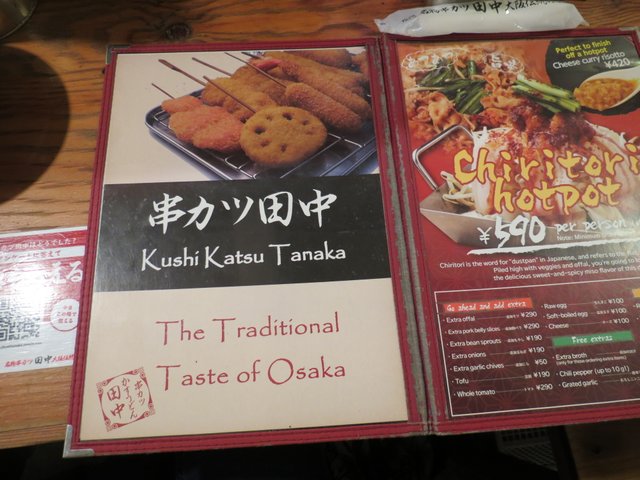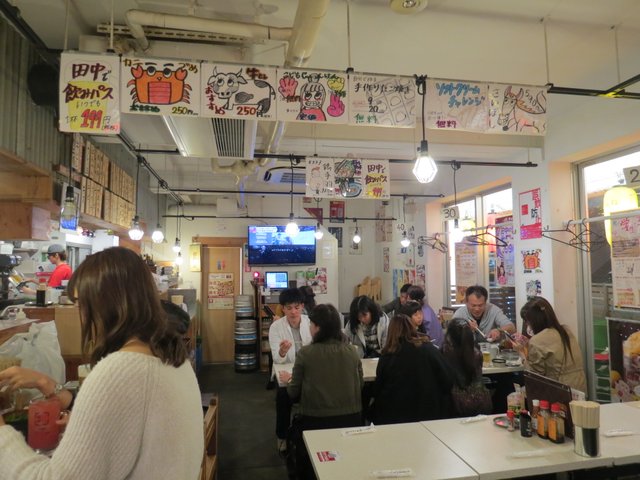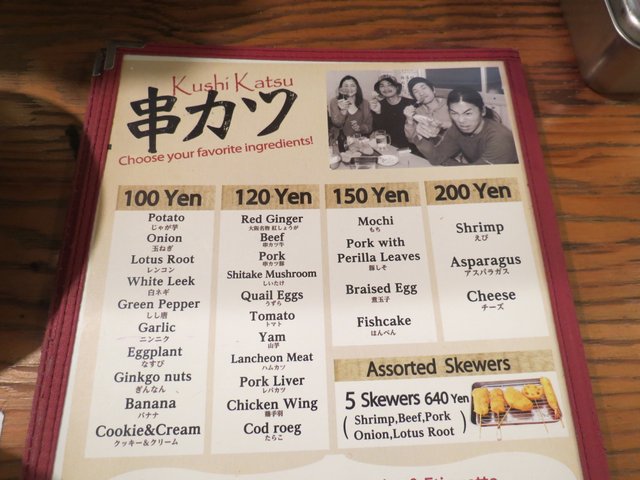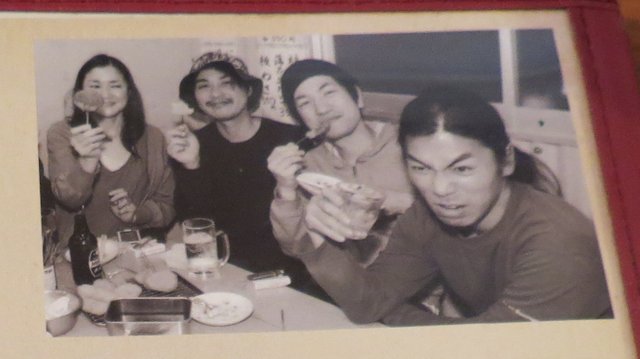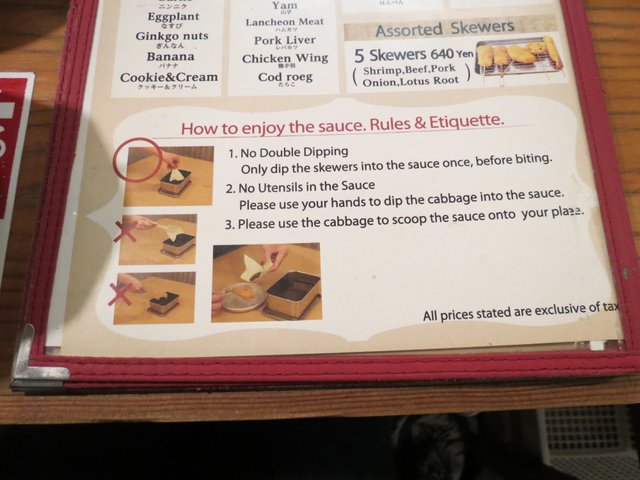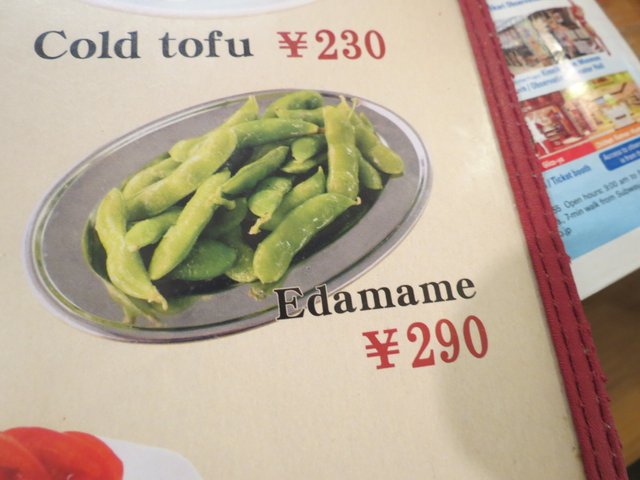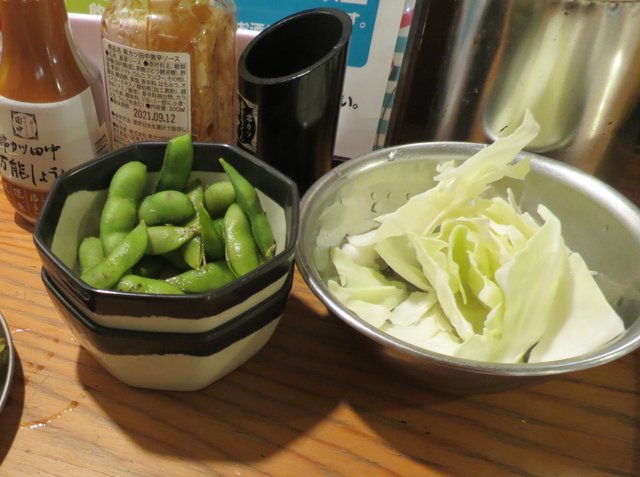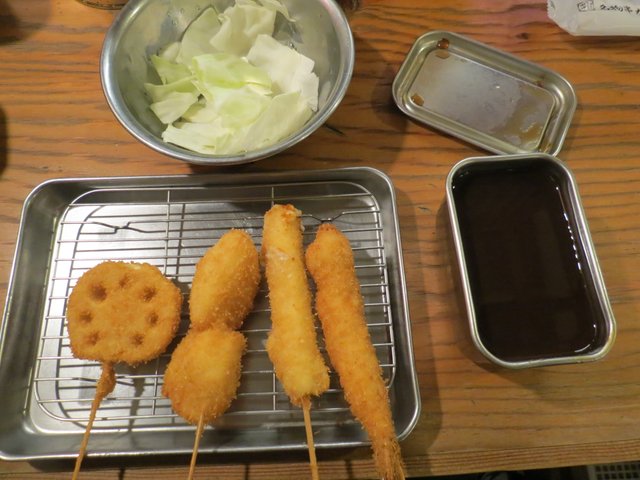Kushikatsu - one of my best culinary discoveries while traveling to Japan (delicious, traditional dish from Osaka)
In this post I will write about a simple dish that I totally fell in love with during my stay in Japan. I mean kushikatsu - a traditional dish, available primarily in the third largest city in Japan, that is Osaka. Kushikatsu consists a variety of vegetables, different types of meat, mushrooms, eggs or cheese coated in breadcrumbs, stuffed on a thin stick , deep fried. Served with tonkatsu sauce, which is traditionally topped with fried dish. Tonkatsu sauce is very popular in Japan, next to soy sauce. It is made of vegetables, fruits and spices, mainly based on: plums, tomatoes, onions, apples and carrots.
The restaurant we came to was quite small, crowded, and at the ceiling and on the walls hung funny, colorful drawings with prices.
Everyone can choose what they want in their kushikatsu. Individual extras are paid separately. I chose the lotus root, shrimp, mozzarella cheese (great spread) and sweet potatoes. The lotus root has a great shape (in the photo below it is the first on the left, it is such a flat ball with many small holes. It has an interesting taste, it is a pity that it is not very popular in my country.
This photo from the card made me laugh ;)
The menu had a description (thankfully in English) about how to use the sauce. The most important rule, soak kushikatsu in a sauce only once (no double dipping) and fill it with the amount of sauce you need. You can possibly pour the sauce on a lettuce leaf. It is important because kushikatsu is usually consumed in a group and one container with sauce is served for many people. The sauce container can also be intended for all restaurant customers. Lettuce can be eaten later, it is good for digestion.
We chose edamame as a snack. So young soybean pods, or rather immature soybean pods in shell. A very healthy delicacy.
Edamame is full of nutrients that make this product unique, even among other types of soy food. One glass of cooked edamame provides about one-third of the daily requirement for both protein and dietary fiber, while providing just under 200 kcal. What's more, about one-third of calories from edamame beans are derived from protein, one-third from carbohydrates, and one-third from fat. These seeds have an extremely balanced composition. In addition, soy, including edamame, is a good source of both polyunsaturated omega-6 (linoleic acid) and omega-3 (alpha-linolenic acid) fats. In addition to the admirable macroelement profile, edamame is packed with vitamins and minerals. This green soy is an excellent source of vitamin B1, iron, magnesium, phosphorus, copper, vitamin K, folic acid and manganese. It is also rich in phytochemicals and active compounds. But the biggest star is isoflavones. These are the compounds that make soy food so interesting and valuable.
Source: Edamame
Finally, a photo from the restaurant's advertising folder. A group of Japanese people eat kushikatsu.

